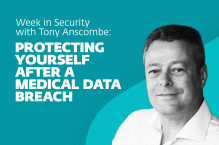Today I read an article in the National Journal concerning cyberwarfare. You can read the article at http://www.nationaljournal.com/njmagazine/cs_20091114_3145.php.
I think people have some misconceptions about “cyberwar”. There isn’t going to be a war, at least anytime soon which is fought with only computers. Computers are simply being used as a weapon in conjunction with traditional warfare.
The article discusses the digital attack against cell phones. Jamming the cell phones using computers is essentially a denial of service attack. Depending upon how the technology was used to spread misinformation it may have been much the same as a man in the middle attack.
Fundamentally the difference between cybercrime and cyberwarfare lies in the objectives and that in the country where the attacks are being carried out, the attackers operate with legal authority.
Sometimes the terms cybercrime and cyberwarfare are used indiscriminately. As an example, I recently returned from Malaysia where I found that for the past year or so Malaysian websites have been under attack from computers that are in Indonesia. Malaysia and Indonesia are not at war and the attacks appear to have nothing to do with war at all. This is an example of cybercrime. Now if the countries were at war, such attacks might be deployed in order to disrupt the government, spread propaganda, or otherwise gain a tactical advantage. Still, without a physical conflict it would not be a war… at least not one that would be won.
From a defensive perspective, much is the same as it is when defending against cybercrime. You patch vulnerabilities in your software, you use defense in depth, such as antimalware, firewalls, intrusion detection, intrusion prevention, and auditing software. You also use a lot of education.
For national defense this is a huge project because you not only have to protect the military computers, but the critical infrastructure and a large array of private computers belonging to civilian suppliers. That’s why the Department of Homeland Security (DHS) is collaborating with the private sector to help increase cybersecurity across the board.
For more information on what DHS is doing to protect the federal network check out http://www.dhs.gov/files/programs/gc_1234200709381.shtm.
If you have any general security questions, feel free to email me at askeset@eset.com
Randy Abrams
Director of Technical Education




